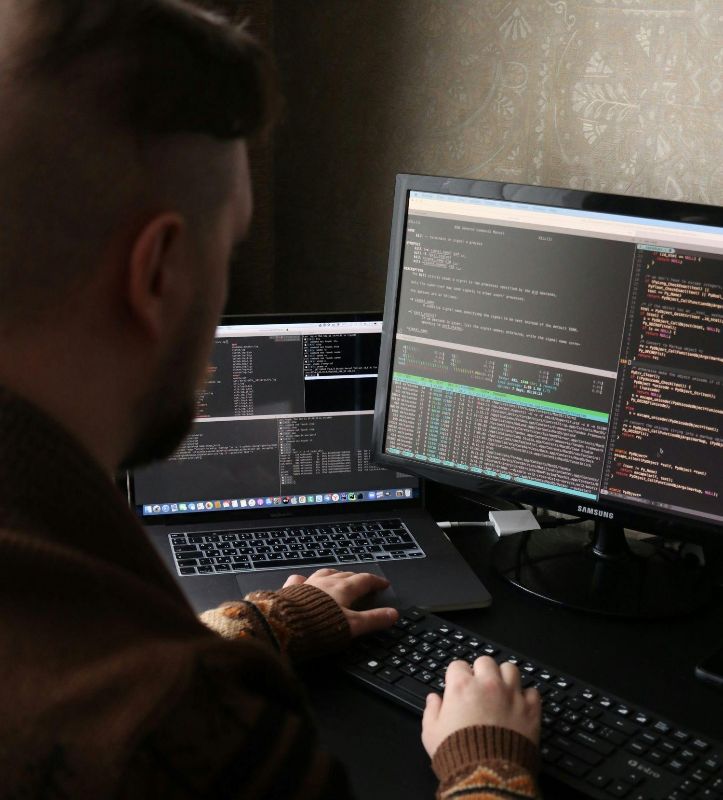Sub-project manager, national defence
"The Finnish Defence Forces may sound like a peculiar workplace for an IT expert, but I warmly recommend that you familiarise yourself with the open jobs. There are more than 4,500 of us in civilian positions, half of which are women. Civilians are not required to have completed a military service or voluntary military service for women."

- The name shall not be published at the request of the interviewee.
- Sub-project manager at the Finnish Defence Forces.
- Has completed a bachelor’s degree in IT at Haaga-Helia University of Applied Sciences and completed additional studies in the field of business at the University of Jyväskylä.
- 16 years of work experience in the field.
Briefly explain what you do for a living.
I work as a sub-project manager at the Finnish Defence Forces. At the Defence Forces, you either work in civilian duties or as a soldier, and I am in a civilian post. I am responsible for projects assigned to me, in a project related to cyber defence, together with the project managers. In practice, I make sure that the objectives of the projects are clear and that the schedules are kept.
How have you ended up in the profession of your choice?
I graduated as a bachelor in IT, and after graduation, I worked for several years in tasks related to websites and the Internet. When the Finnish Defence Forces applied for a project manager for a cyber defence project, I decided to apply for the position. I thought the position could fit me because I had the necessary experience and was interested in the field. I got the job, and so I ended up in cyber defence.
Describe your typical working day or week.
A large part of my work is communication, and I like being able to work with different people. We are working with modern technology, and our discussions are very technical, and we use a lot of English terms. At times, we have difficulty describing complex entities in a short and comprehensible manner, and here is where we still need practice.
For most of the meetings, some people are physically present and the rest are remote. During the day, we talk a lot via messages and phone. Meetings requiring brainstorming are arranged face-to-face. Humour is an essential part of our working days. Personal smart phones and the likes cannot be imported into our workspaces, so private calls must be handled, for example, in fresh outdoor air. You can exercise during working hours for two hours a week.
What kind of work environment or working hours do you have?
I usually work at the office. I like it there because I can meet other people and things work smoothly. Our workspace is well protected, so we don't have to worry about dirty windows in the spring. For example, strictly classified information can only be processed there.
There are a few days travelling within a month. It is also possible to arrange meetings remotely, but I personally prefer face-to-face meetings.
My working hours are flexible, and they mainly follow typical business hours. I can start work between six and ten in the morning. Similarly, I can end my working day between two and eight in the evening. The Defence Forces allow you to work remotely for 12 days a month if the duties allow. Although the to-do list is never completely empty, I don't usually have to work overtime. During military exercises, then again, working days last from morning to evening, which will be compensated later as holidays and additional financial compensation.
What kind of competence or qualities are required in the profession?
Understanding the technology in question helps perceive the interdependencies between different areas and promotes cooperation in projects. Working with technology requires English skills. Working with soldiers is sometimes straightforward and fast-paced, which requires flexibility, as plans can change at short notice.
What is the best thing about your profession?
It's great to be able to work with the top experts of the field. Cooperation with the Defence Forces' partners is very close and provides new insights every week. It is rewarding to see how the end result created through brainstorming, planning and construction works in practical situations.
What are the downsides of the profession or what seems challenging?
As we are developing something completely new, inventing a technical solution can take a lot of time and resources. However, the solution has always been found so far.
What would you tell a person considering the profession of a project manager?
The Finnish Defence Forces may sound like a peculiar workplace for an IT expert, but I warmly recommend that you familiarise yourself with the open jobs. There are more than 4,500 of us in civilian positions, half of which are women. Civilians are not required to have completed a military service or voluntary military service for women. If working with talented professionals is of interest to you, the Defence Forces provide a meaningful job. The Defence Forces' facilities are located in different parts of the country, which brings pleasant variation to the work.
How do you see the future of your profession?
The IT sector and cyber security are developing rapidly and will offer job opportunities also in the future. In addition to programmers and technical experts, there is plenty of work for project managers, designers, testers and usability experts. When you work in this sector, you get to follow technological development and also be part of it through your own work.
